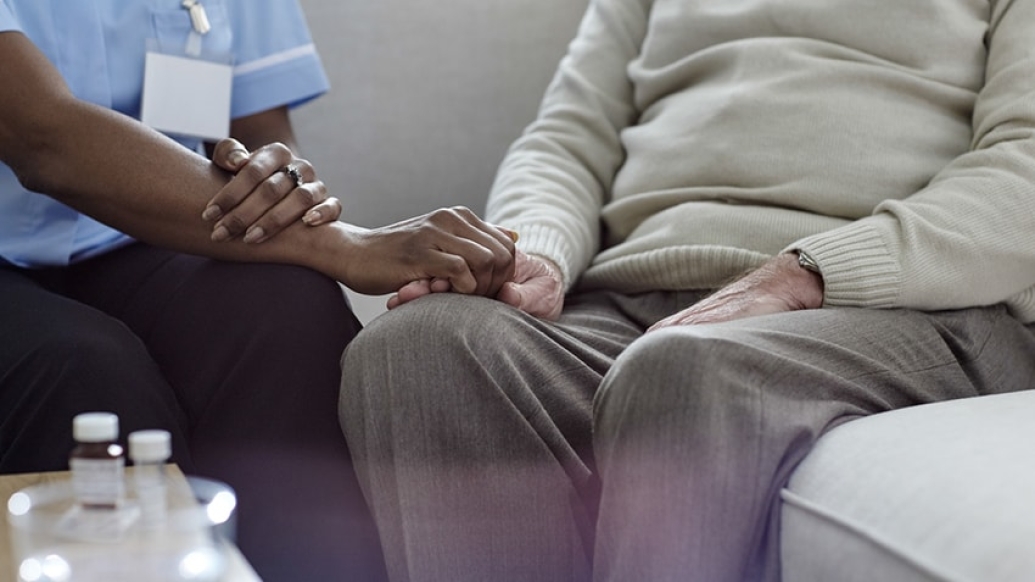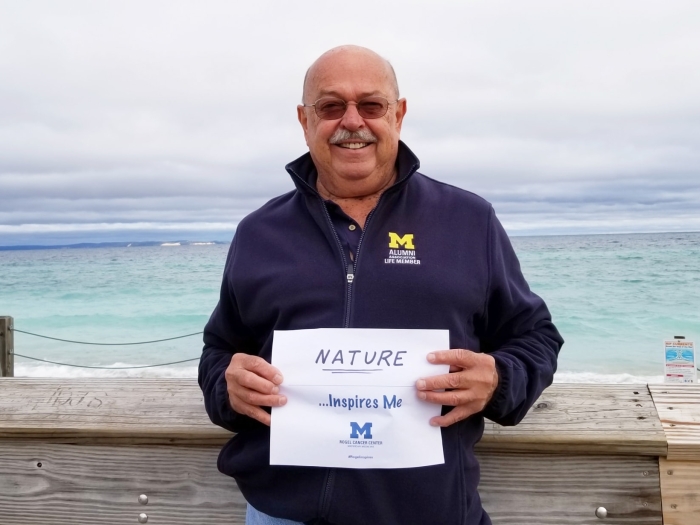A patient, family member and physician recall their actions and emotions when faced with a cancer diagnosis.
7:00 AM
Author |

Like most significant events in our lives, patients frequently remember the exact words they heard, the place they were sitting or standing, or the immediate questions that came to mind when learning they had cancer.
MORE FROM MICHIGAN: Subscribe to our weekly newsletter
Communicating about illness can be difficult — not only for the diagnosed, but also for family members and loved ones, and even doctors and caregivers.
Breaking bad news to anyone is hard. And the task can be near impossible when that news is cancer.
Still, there are ways to help ease the shock and forge ahead with the best possible course of action.
Here, in their own words, are tips on how to best approach that three-way conversation from the perspectives of a cancer patient, an affected family member and a urologist at the University of Michigan Rogel Cancer Center — all of whom share what helped, what didn't help and how the discussion might have gone differently in hindsight.
Patient
Karen Pitton, endometrial cancer survivor
On hearing the news from her gynecologist:
She told me they looked at the results and saw cells that were consistent with endometrial cancer. She didn't come right out and say it. It wasn't until later in the conversation that I said to her, "So what you're telling me is that I have endometrial cancer?" She said "Yes."
On telling her family:
I called my mother the next morning, and it was the hardest phone call I have ever had to make. I found myself saying the exact same thing the doctor said to me. I used the same phrases and terminology. I wondered if my mother actually knew I had cancer or if she thought it was all precautionary. She knew.
On open dialogue:
I liked that my doctor spent a lot of time on the phone with me. She called at night and I suspect she wanted to ensure she had enough time to talk. But instead of her saying the cells were consistent with cancer, I wanted to hear straight out that I had cancer.
To be fair, my primary physician told me later that breaking that news to a patient you don't know very well is very difficult.
Family member
Diane Drago, lost her husband to kidney cancer complicated by Parkinson's syndrome
On acceptance:
I asked the oncologist if this was the beginning of the end. He replied, "No, you're really in the middle of the end and you need to prepare." Not everyone wants to hear it, but I did.
We had a final meeting with the oncologist, neurologist, rehab team and social worker. Everyone knew why we were there, but the elephant in the room remained. It was clear my husband was waiting for someone to say it. Finally, his oncologist paused and quietly said, "I'm afraid we just don't have the tools to fix what's wrong with you. I'm sorry."
My husband visibly relaxed. He had permission to stop fighting and was finally at peace.
On transparency:
The oncologist and my husband established a great bond quickly. Their communication was straightforward and thorough from the start — exactly what he needed. Even the processes of chemo preparation and resulting wait times were discussed with us at the outset.
When I hear other people's stories, I'm often saddened. Not everyone is as fortunate to have the kind of care team we did.
Physician
Alon Weizer, M.D., a urologist at the U-M Rogel Cancer Center
On delivering bad news:
Delivery of the news of a cancer diagnosis is never easy. It is also not a skill set that is taught in medical school. I believe it is critical to get to know the patient from both a medical and personal standpoint.
I assess a patient's understanding of the current circumstance. It is important I do my homework before having the conversation so I can tell them about the disease and what options are available to them.
On lessons learned:
When I let emotion rise to the top of the discussion, I failed to give my patient the information needed to make a good decision.
I like to discuss the treatment options available based on the facts. Broad discussions around treatment options are not helpful because we could be having discussions about treatment choices that are not appropriate based on the stage and grade of the cancer.
Speculation should never be part of the conversation.
On preparation:
I must be prepared to discuss the specifics of the cancer, the need for additional diagnostic tests, the treatment and who will be responsible for the aspects of treatment.
It is very helpful when patients come with a list of questions and a person who can be a second set of ears that they trust.

Explore a variety of healthcare news & stories by visiting the Health Lab home page for more articles.

Department of Communication at Michigan Medicine
Want top health & research news weekly? Sign up for Health Lab’s newsletters today!





